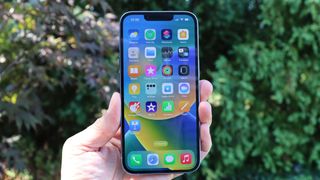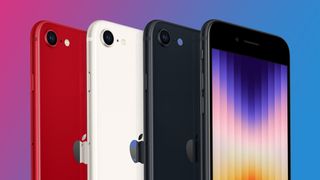- The iPhone SE 4 could come in under $500
- Pricing will vary between countries
- A slight price hike over the iPhone SE 3 is likely
As we wait patiently for the iPhone SE 4 to appear – March 2025 is looking likely as a launch window – we've just got some more information on a potential price, information which lines up neatly with previous rumors.
According to well-known tipster yeux1122 (via @Jukanlosreve), the price is going to be under $500 in the US. That would be a bump of some 16-17% over the starting price of the current model, and its a price prediction we've heard before.
The TechRadar iPhone SE (2022) review will tell you that the 3rd-gen version of this phone started at $429 / £419 / AU$719, although it's not unreasonable to expect some kind of pricing fluctuation if its successor is arriving three years later.
And that's for the 64GB model – it's possible that the new iPhone SE 4 will start with 128GB of storage inside. An iPhone SE (2022) with 128GB of storage inside costs $479 / £469 / AU$799, which is perhaps a fairer comparison with the latest price leak, and would mean a much smaller price bump.
A modern iPhone SE

Of course, the international currency conversion rates will play a part here, as usual. The same tipster predicts a South Korea starting price of over 800,000 won – substantially more than the current starting price of 650,000 won.
In other words, you may end up paying more or less for the iPhone SE 4 depending on the country you're living in and its current financial situation. Clearly Apple will do its best to keep prices down – what with this being the affordable iPhone option.
It seems this will be the first iPhone SE with a modern look – with Face ID rather than Touch ID and a home button – and the rumors are that the upcoming handset will closely follow the iPhone 14 design from 2022.
The handset has also been tipped to come with an Apple-made chip for Wi-Fi and 5G, something yeux1122 backs up in this latest leak. That should mean the phone costs Apple less, with another own-brand part inside, but we'll have to wait and see if that saving gets passed on to consumers.










 English (US) ·
English (US) ·